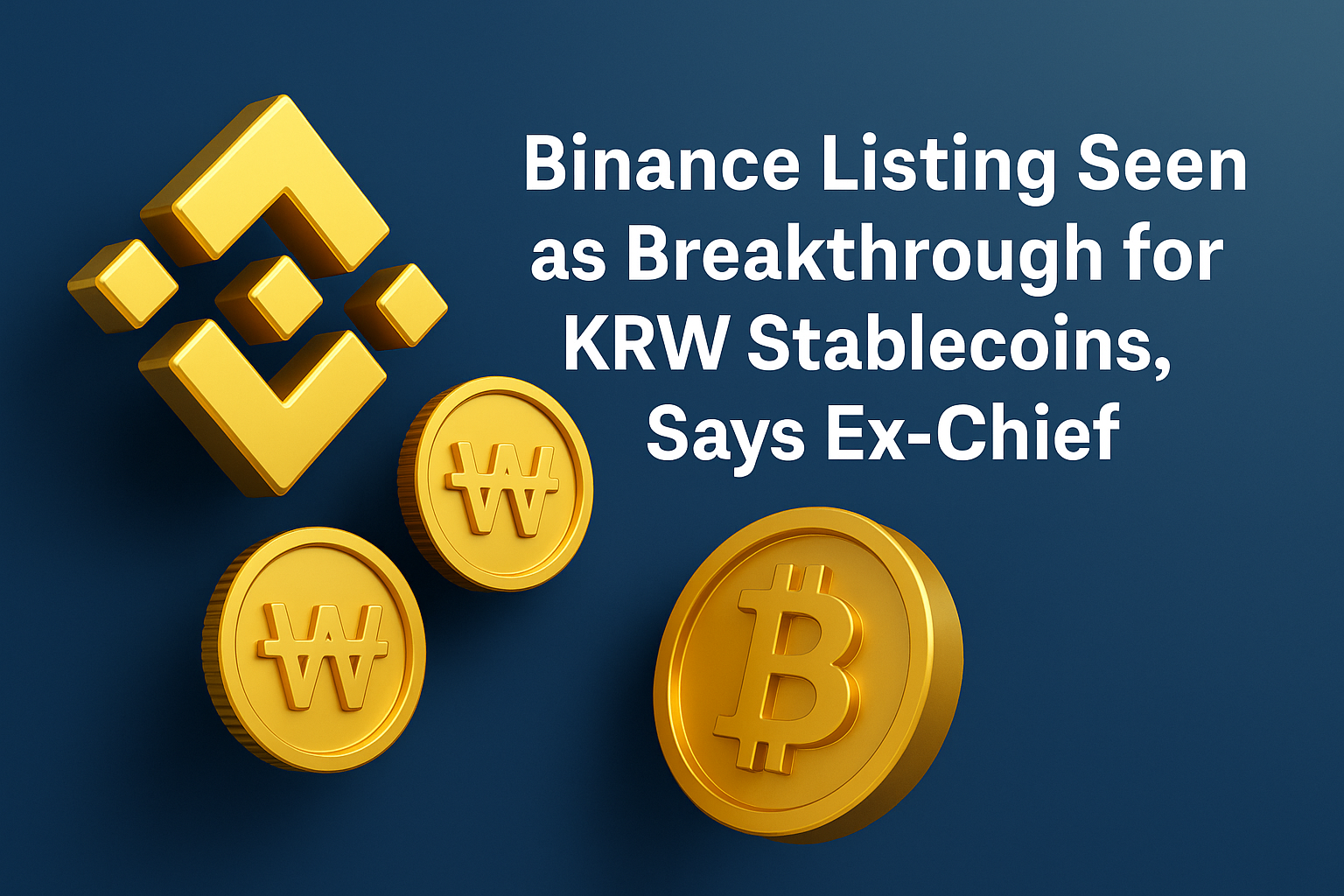Lee Kwang-jae, former Secretary-General of South Korea’s National Assembly and now a professor at Myongji University, has voiced strong concerns about the country’s cryptocurrency roadmap. According to him, KRW-backed stablecoins — a digital currency tied to the Korean won — will only succeed if they are listed on major global cryptocurrency exchanges such as Binance. Without international accessibility, he warns, South Korea’s stablecoin ambitions could fall short of their potential.
Why Global Listings Are Crucial
While South Korea is preparing to launch stablecoins pegged to its national currency, Lee argues that releasing them exclusively on local cryptocurrency platforms is insufficient. Limiting KRW stablecoins to domestic markets risks isolating them from global participation. Stablecoins are designed to connect traditional money with digital assets, and without global visibility, they lose much of their intended value. Listings on international platforms like Binance and Coinbase, he emphasizes, are essential to establish credibility and secure adoption across the global cryptocurrency industry.Domestic Restrictions Blocking Growth
Currently, South Korea’s leading cryptocurrency exchanges, including Upbit and Bithumb, maintain strict rules that exclude foreign users. Requirements such as real-name bank accounts and national identity verification limit participation to Korean citizens. Lee stresses that unless these restrictions are relaxed, KRW-backed stablecoins will struggle to achieve global relevance. By allowing international traders to participate, South Korea could strengthen its presence in the global digital economy and expand adoption of its cryptocurrency initiatives.
The Role of Technology Giants
Lee also underlined the importance of South Korea’s technology giants in driving cryptocurrency adoption. Companies like Samsung, with its dominance in smartphones and its popular Samsung Pay platform, could play a transformative role by issuing a KRW-backed stablecoin. If integrated into Samsung Pay, such a cryptocurrency could extend the reach of stablecoins worldwide, helping South Korea emerge as a strong competitor in the global cryptocurrency landscape.
Everyday Applications Beyond Finance
For Lee, KRW stablecoins are more than just financial tools — they could serve as practical solutions for everyday needs. Payments for K-dramas, webtoons, and other forms of digital entertainment could be powered by stablecoins. International students might rely on them for easier tuition and education payments, while healthcare providers could use them to streamline telemedicine and cross-border consultations. By embedding stablecoins into daily life, South Korea could push its cryptocurrency economy closer to mass adoption.
The Regulatory Divide
Despite the promise, South Korea remains divided on how to regulate stablecoins and cryptocurrencies. Conservative policymakers argue that issuance should remain under the control of banks, while progressives advocate for the inclusion of private technology firms. Lee views a bank-only model as outdated, highlighting global examples such as Tether and Circle, which have successfully operated under private leadership. He calls on regulators to strike a balance between innovation and security, aligning South Korea’s policies with global cryptocurrency standards.
Conclusion
Lee Kwang-jae’s comments underline a decisive moment for South Korea’s cryptocurrency policy. To make KRW-backed stablecoins competitive on a global scale, they must be listed on international platforms like Binance, opened to foreign traders, and supported by both financial institutions and technology firms. With potential applications in entertainment, education, and healthcare, stablecoins could redefine the role of the Korean won in the global cryptocurrency economy. However, without bold, forward-looking regulation, South Korea risks being left behind in the fast-moving digital finance race.



